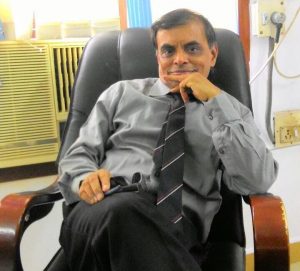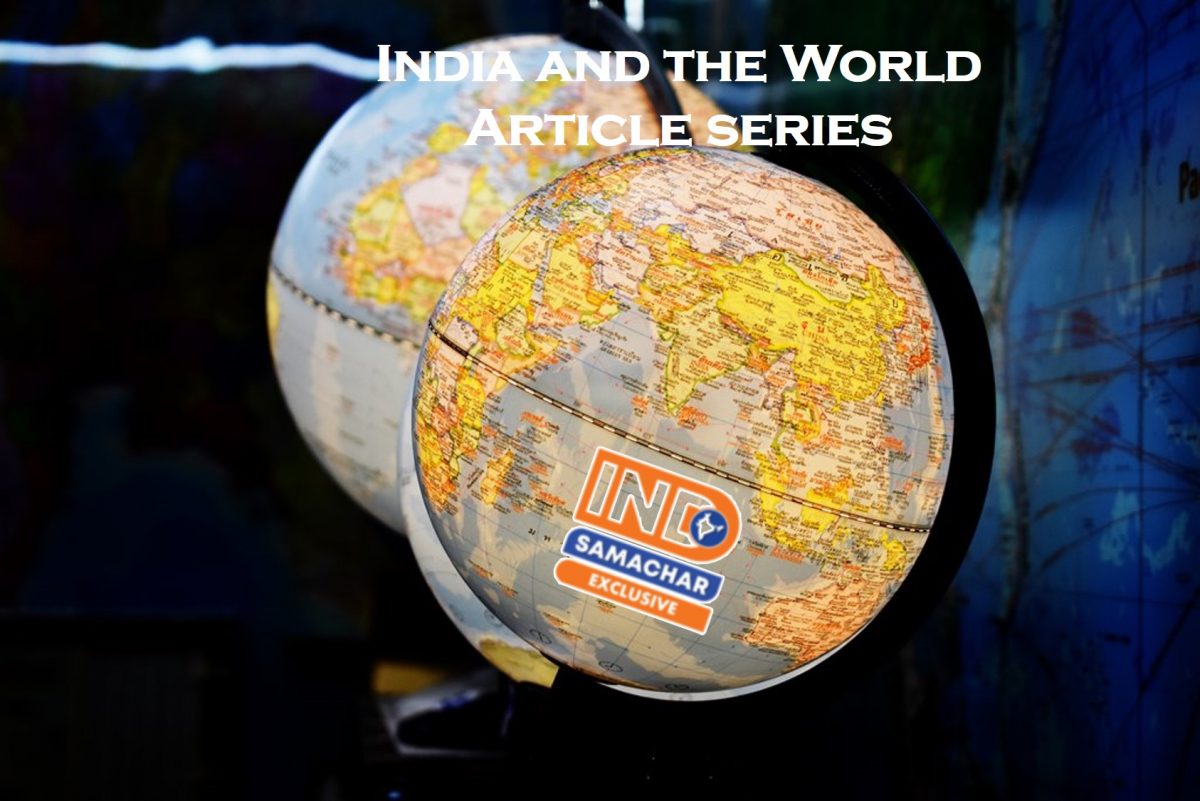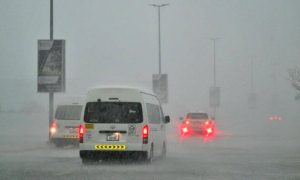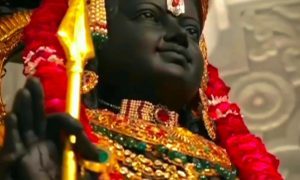India and the World Chapter 4: The nagging neighbour – violence and violations.

Baskaran Krishnamurthy
Have you read Chapter 1 , Chapter 2 and Chapter 3 ? if not click on the links
“With regard to Pakistan, there is a continued consensus in India seeking to improve relations with that country, once intruders are withdrawn. We shall do this in good faith, but without any illusions.” (A B Vajpayee – N Delhi, 28 June 1999)
A victory, to be sweet, has to be earned. If it comes unasked as an undeserving gift, it is bound to turn sour and bitter. It happened much sooner than expected in the case of Pakistan.
Had Jinnah been alive for a few more years, it might have been a different Pakistan for sure. Sadly, that was not to be. As India lost Mahatma in less than a year of Independence, Pakistan also suffered a similar set back. Mohamed Ali Jinnah passed away in September 1948 – barely a year after the emergence of Pakistan.
The sudden, unexpected birth of a nation had nothing to offer to the youth of Pakistan. After Jinnah, there was literally nobody worth a leader who could carry the people together and take the country forward.
India had a battery of leaders like Nehru, Patel, Rajaji, Sasthri, Abul Kalam Azad, Kamaraj, Jayaprakash Narain, Morarji Deasi, Vonoba Bave, Acharya Kripalani and numerous others to carry on with the ‘Mahatma Era’.
But in Pakistan, not a single person was anywhere in sight to match the calibre of Mohamed Ali Jinnah. Absence of a credible leader turned the matters worse for Pakistan. Hawkish elements quickly occupied positions of power; the government, the military, the people and the whole of Pakistan became hawkish too.
Education, employment, health, transport, social harmony… there were quite a number of areas from where Pakistan could have started its journey to growth and progress. But the early rulers of Pakistan were not interested in any of these. Power was their only concern and all they wanted was something that would keep the people ‘hooked’.
For all the successive rulers of Pakistan, ‘anti-India’ sentiment came in handy to hide their weaknesses, shortcomings and misdeeds. Hence, ‘hatred’ was the route the rulers had consciously chosen to safeguard the ill gotten power. Every single ruler of Pakistan during the past 71 years has seen to it that ‘the furnace’ keeps burning; the situation keeps simmering. Animosity should not vanish; acrimony should not die down; enmity must not evaporate. This policy of hostility has come to stay in the relations between India and Pakistan.
Moulana Abul Kalam Azad had foreseen the approach of Pakistan and said – “We must remember that an entity conceived in hatred will last only as long as hatred lasts. This hatred will overwhelm the relations between India and Pakistan”.
Pakistan has never left anyone to guess about its overtly incriminating activities, about its unprovoked attacks and about its ill conceived strategy of going all out to aid, support and encourage illegal infiltration into India. Its blatantly outrageous acts of violence through master minded insurgency remain an open secret with the international community preferring to close their eyes to whatever happens between India and Pakistan.
The ‘cost free’ nationhood made the Pakistan leaders to believe that their unjust demand would eventually be met and would one day come through. And this feel of empty pride drove them impatient and they were not ready to ‘waste’ a single day in office.
Pakistan stumbled upon the problem of accession of Kashmir which had Muslims in majority. It was a pretty simple calculation. It would be easier to play the religious card in Kashmir than in any other part of India.
Pakistan started its ugly game at an as early period as October 1947, yes, in less than 3 months of Independence. As a result, India had to send its troops to Kashmir on October 27, 1947.
In his broadcast to the nation on 2nd November 1947, J Nehru said – “there has been fraud and violence in Kashmir. Who is responsible for it? Considerable parts of Jammu and Kashmir State have been overrun by raiders from outside, well armed and well equipped, and they have sacked and looted the towns and villages and put many of the inhabitants to the sword.”
“I have before me a detailed list of 95 villages in the Jammu province which have been destroyed by the raiders from Pakistan….. armed and well equipped persons in over one hundred lorries had broken in, had sacked Muzaffarabad and killed many persons including the District Magistrate…”
“We received urgent messages for aid not only from the Maharaja’s Government but from representatives of the people, notably that great leader of Kashmir, Sheik Mohamed Abdullah, the President of National Conference. Both the Kashmir Government and the National Conference pressed us to accept the accession of Kashmir to the Indian Union.”
In three months from then, came the Proclamation of His Highness Hari Singh Indar Mahindar Bahadur of Jammu and Kashmir, on the fifth day of March, 1948. Maharaja’s order established a constitutional government with a Council of Ministers, a legislature with a majority of elected members and an independent judiciary.
Maharaja declared – “I have already appointed the popular leader of my people, Sheikh Mohamed Abdullah, as the head of the Emergency Administration.”
“It is now my desire to replace the Emergency Administration by a popular interim government and to provide for its powers, duties and functions, pending the framing of a fully democratic Constitution.”
The Proclamation made it amply clear that accession of Kashmir with Pakistan was never an option with either the Maharaja or with the representatives of the people of the State. But the intrusion by Pakistan was not to be suspended. It continued; it continues.
The question that Jawaharlal Nehru raised sums up the role of Pakistan and it has not been answered till date – even after 70 years:
“We talk about the invaders and raiders in Kashmir and yet these men are fully armed and well-trained and competent leadership. All of these have come across from Pakistan territory. We have a right to ask the Pakistan Government how and why these people could come across the Frontier Province of West Punjab and how they have been armed so effectively. Is this not a violation of international law and an unfriendly act towards a neighbor country? Is the Pakistan Government too weak to prevent armies marching across its territory to invade another country or is it willing that this should happen?”
The Statement at a Press Conference, New Delhi, January 2, 1948 says: (thank – Jawaharlal Nehru Selected Speeches Volume One – 1946 – 1949 by the Publications Division, Ministry of I&B, Govt of India)
“On December 22, 1947, a formal request was made by India in writing to the Prime Minister of Pakistan. The Government of Pakistan was asked to call upon Pakistan nationals to cease participating in the attack on Jammu and Kashmir and to deny to the invaders: 1) all access to and use of Pakistan territory for operations against the Kashmir State 2) all military and other supplies 3) all other kinds of aid that might tend to prolong the present struggle.”
“As no reply was received to this formal request, two reminders were sent. Ultimately, on December 30, reference was made to the Security Council of UNO. The Government of India requested the Security Council to ask the Government of Pakistan:
- To prevent Pakistan Government personnel, military and civil, participating in or assisting the invasion of the Jammu and Kashmir State;
- To call upon other Pakistan nationals to desist from taking any part in the fighting in the Jammu Kashmir State;
- To deny to the invaders: a) access to and use of its territory for operations against Kashmir; b) military and other supplies; c) all other kinds of aid that maight tend to prolong the present struggle.”
This move of Jawaharlal Nehru is still being seriously debated by a few sections raising the accusation that Nehru had internationalized an issue which was purely within the ambit of the Indian Government. But, in any case, the conflict would have never reached a point of conciliation.
Abetment, aggression, infiltration, insurgency to the military interventions and global terrorist operations… India – Pakistan relations present a very interesting study in the sense that it is a perfect case of ‘being cool at the boiling point’.
Author – Baskaran Krishnamurthy, Writer, Columnist & Income Tax officer
























 WhatsApp us
WhatsApp us
Pingback: Top Beaches in Asia
Pingback: is 7lab pharma legit
Pingback: corey
Pingback: แหล่งเงินกู้
Pingback: knockoff tag best clone
Pingback: cheltenham chauffeur service
Pingback: sex
Pingback: thenaturalpenguin.com
Pingback: facebook old layout
Pingback: 메이저놀이터
Pingback: Digital business transformation
Pingback: fake franck muller
Pingback: replica Best Tag Imitations
Pingback: lace front wigs
Pingback: CICD
Pingback: binance video
Pingback: Buy Weed Online
Pingback: Seksi Kuusikymppisenä
Pingback: additional info
Pingback: สล็อตวอเลท ไม่มีขั้นต่ำ
Pingback: hho kits sale/47% Fuel-Saving Plug-N-Play HHO Kit HHO generator Hydrogen kits for cars trucks
Pingback: wow slot
Pingback: Alquiler de trasteros
Pingback: Spectrum lawsuit
Pingback: Arie Baisch
Pingback: window installer
Pingback: Chirurgie Tunisie
Pingback: Chirurgie Tunisie
Pingback: Chirurgie esthétique Tunisie
Pingback: National Chi Nan University
Pingback: Professional development courses at future university in egypt
Pingback: Chairman's Welcome Note fue
Pingback: Economics
Pingback: Political Theory
Pingback: FUE
Pingback: علم العقاقير والسموم
Pingback: Cosmetic dentistry
Pingback: الرسوب وإعادة التسجيل في الدورات
Pingback: what are the majors of the College of Engineering
Pingback: Community Engagement
Pingback: Student Grievances
Pingback: FCIT Admission Requirements
Pingback: Technical Writer
Pingback: fue
Pingback: top university in egypt
Pingback: annual welcome party
Pingback: Pharmacy's PHD
Pingback: افضل جامعة لدراسة ادارة الاعمال
Pingback: التنمية الشخصية
Pingback: كلية طب الاسنان الخاصة المعتمدة
Pingback: orange hawaiian mushroom for sale magic boom bars where to buy psilocybin capsules for sale
Pingback: https://www.kooky.domains/post/the-benefits-of-investing-in-web3-domains-over-traditional-domains
Pingback: ماجستير في إدارة الأعمال
Pingback: public administration degree
Pingback: Social Activities for pharmacy students at future university
Pingback: Prof. Ebada Sarhan
Pingback: Dr. Khaled Azazy
Pingback: مناهج ماجستير إدارة الأعمال في مصر
Pingback: Application fee for future university
Pingback: برامج البكالوريوس في جامعة المستقبل
Pingback: Maillot de football
Pingback: Maillot de football
Pingback: Maillot de football
Pingback: controsoffitto led
Pingback: ikaria juice
Pingback: Fiverr Earn
Pingback: Fiverr Earn
Pingback: illuminazione interni
Pingback: Advance-Esthetic LLC
Pingback: kos daftar sdn bhd online murah ssm
Pingback: freight class calculator
Pingback: flatbed broker
Pingback: frenchies in houston
Pingback: fiverrearn.com
Pingback: puppies french bulldog
Pingback: for sale miniature french bulldog
Pingback: french bulldog puppies texas
Pingback: isla mujeres restaurants
Pingback: Specialized Piano Handling
Pingback: Private universities in Egypt
Pingback: isla mujeres golf carts
Pingback: lilac merle french bulldog
Pingback: big rope french bulldog
Pingback: clima fresno ca
Pingback: mail in cell phone repair
Pingback: we buy phones
Pingback: french bulldog for sale tx
Pingback: future university
Pingback: future university
Pingback: golf cart isla mujeres
Pingback: french bulldog houston texas
Pingback: multisbo link alternatif
Pingback: golf cart rental isla mujeres mexico
Pingback: bulldogs puppy
Pingback: future university
Pingback: Piano moving specialists
Pingback: Business management courses in Cairo
Pingback: Classic Books 500
Pingback: Speaker
Pingback: Porn Australia
Pingback: partners
Pingback: live sex cams
Pingback: Best University in Yemen
Pingback: Scientific Research
Pingback: FiverrEarn
Pingback: FiverrEarn
Pingback: cheap sex cams
Pingback: rare breed-trigger
Pingback: 늑대닷컴
Pingback: Slot Romawi
Pingback: freelance web developer Singapore
Pingback: allgame
Pingback: 918kiss
Pingback: Beauty products reviews
Pingback: pg slot
Pingback: resorts in the catskills new york
Pingback: duromine
Pingback: Skywhip tanks
Pingback: itsmasum.com